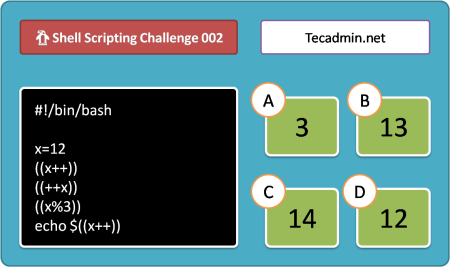Generating random numbers in Bash is a common task in scripting and programming, providing functionality for various applications such as simulations, games, and decision-making processes. This article delves into the methods of generating random numbers in Bash, exploring built-in commands and external utilities, while addressing considerations for randomness quality and use cases.
1. Using $RANDOM
Bash provides a built-in variable $RANDOM which returns a pseudo-random integer between 0 and 32767. It’s the simplest method for generating random numbers.
Syntax: Simply access the variable:
echo $RANDOM
Custom Range: To generate a number within a specific range, use arithmetic expansion:
# Random number between 0 and 99
echo $((RANDOM % 100))
Reseeding: $RANDOM uses the current time as the seed. To reseed, modify the RANDOM variable:
RANDOM=seed_value
2. Using shuf Command
The shuf command is part of the GNU core utilities and is used for generating random permutations. It can be used to generate random numbers within a specified range.
Syntax:
shuf -i MIN-MAX -n 1
Example:
# Random number between 10 and 20
shuf -i 10-20 -n 1
3. Using awk
awk is a powerful text processing tool in Unix/Linux, which can also generate random numbers.
Syntax:
awk 'BEGIN {srand(); print int(rand()*(MAX-MIN+1))+MIN}'
Example:
# Random number between 1 and 50
awk 'BEGIN {srand(); print int(rand()*50)+1}'
4. Using /dev/random and /dev/urandom
For more cryptographically secure random numbers, Bash scripts can read from /dev/random and /dev/urandom.
- /dev/random: Blocks until sufficient entropy is gathered. Suitable for cryptographic purposes but can be slow.
- /dev/urandom: Does not block and is faster, but slightly less secure than
/dev/random.# Reading 4 bytes from /dev/urandom and converting to an integer
od -An -N4 -tu4
Best Practices and Considerations
- Randomness Quality: For most scripting purposes,
$RANDOMand shuf are adequate. For cryptographic or security-related tasks, prefer/dev/urandom. - Performance: If performance is a concern, especially in loops, test the execution time of different methods.
- Portability: Consider the availability of commands like shuf and awk on systems where the script will run. The
$RANDOMvariable is always available in Bash. - Reproducibility: For reproducible results (e.g., in testing), control the seed value when possible.
Conclusion
Random number generation in Bash can be achieved through various methods, each with its own use case and characteristics. Understanding these methods and their appropriate applications ensures effective and efficient scripting in diverse scenarios. Whether it's a simple script or a complex application, Bash provides the tools necessary to incorporate randomness effectively.
